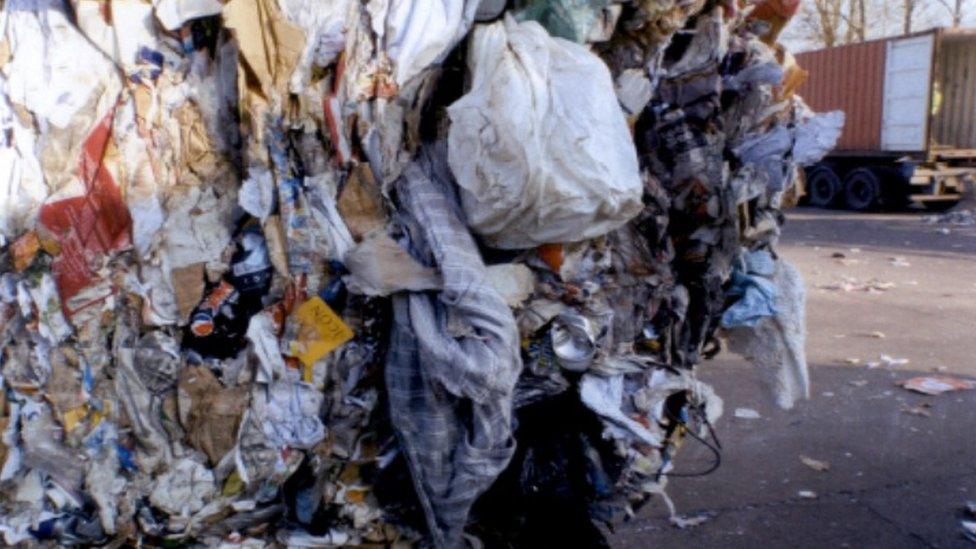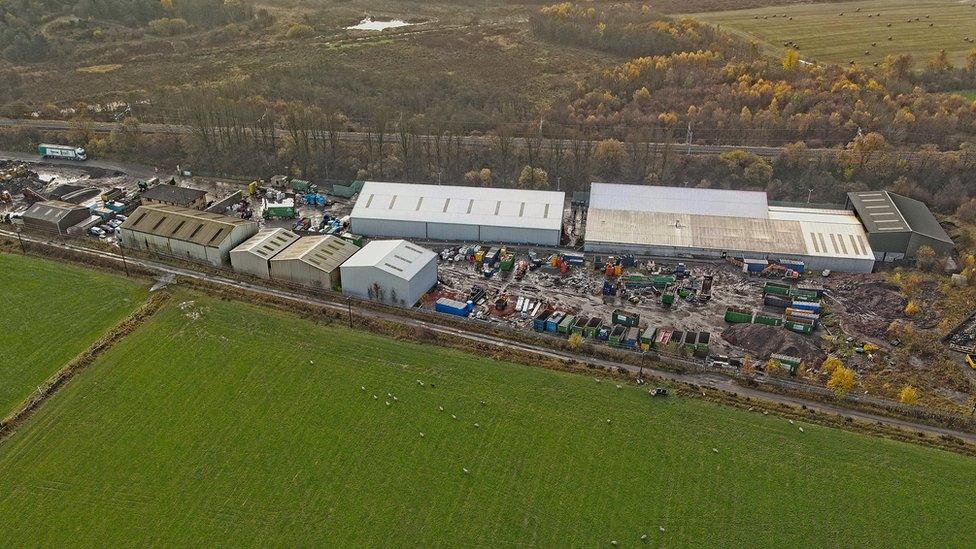Recycling firm sent old nappies and dog poo to China
- Published

Saica Natur attempted to send tonnes of household waste to China wrongly described as paper
A recycling firm has been fined £20,000 for illegally shipping 1,300 tonnes of household waste to China.
Saica Natur exported bales of used nappies, dog excrement and drinks cans from its plant in North Lanarkshire - but claimed it was "waste paper".
The Scottish Environment Protection Agency (Sepa) said it was the largest single illegal export of household waste from Scotland.
The regulator discovered the breach during a routine audit of the facility.
Sepa Chief Executive Terry A'Hearn said it was the most serious offence that officers had witnessed, adding he was concerned it could "create doubt in the public's mind" that their recycling would be managed appropriately.
The waste, which came from Saica Natur's Croy plant, had been loaded inside 51 shipping containers destined for recycling in China.
Normally the company would send waste paper to its mill in Manchester, but a fire in June 2016 meant capacity was reduced and paper was being exported abroad.
Sepa said officers became aware of "poor quality" waste paper bales on the site during a routine audit that year.

The waste came from the Saica Natur plant in Croy, North Lanarkshire
They found the bales were contaminated with a "high level" of household waste - including textiles, plastic, used nappies, metal, glass and food waste.
Sepa told the site manager to stop all exports and intercepted the containers that had already been shipped.
Between September 2016 and March 2017, officers examining the bales of waste discovered electrical and electronic equipment, used nappies, sanitary towels, food contaminated packaging, food, dog excrement, wood, textiles, shoes, clothing, jewellery, aerosol cans, toys, glass, plastic food and drinks containers and cans.
Sepa said while a small number of bales suitable for export, the "overwhelming majority" were not.
'No excuse'
Saica Natur was fined £20,000 at Airdrie Sheriff Court on Tuesday have pled guilty to contraventions of waste shipment regulations on 21 September.
These regulations, set out by the European Commission, are designed to protect developing countries who receive waste from developed countries from potential harms to the environment and health of the population.
Sepa's Terry A'Hearn added: "I hope this prosecution serves as a warning to everyone that Sepa will not allow Scotland's waste to become someone else's environmental problem."
"We're clear in what we expect of businesses of all sizes, from SMEs to specialist companies. Ignorance of the law, and especially well-established international and domestic laws, is no excuse.
"Sepa will continue to invest significant regulatory effort in monitoring waste exports to ensure compliance and will use a variety of approaches to successfully detect, disrupt and deter illegal waste exports from Scotland."
Saica Natur has taken action to improve performance at its Croy site, according to Sepa.